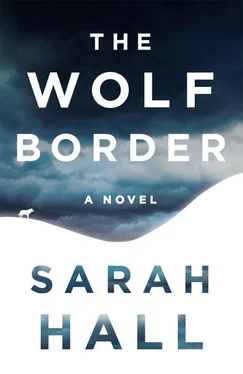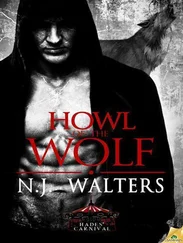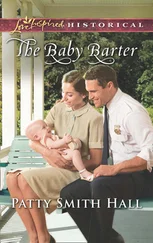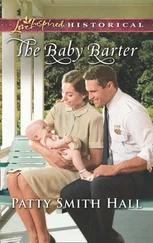I like how they move, she says. Sort of floppy but fast. Can they live without their parents yet?
It’s perhaps a loaded question. Should the subtext — I’m not getting on with my dad — be addressed? Fall back on what you know, Rachel thinks. On the hike back to the car, she talks about the notion of intelligence and problem-solving. She tells Chloe about a wolf in the rescue centre in Romania that learnt to open its cage door by watching its caretakers.
How?
She pulled on the mechanism. A rope.
That’s really clever.
Maybe. But how can we know it wasn’t a reflex action? I mean, wolves and dogs tug on things. I bet you’ve seen them do it with slippers and anything dangling.
Yes. Our old sheepdog used to.
Chloe pauses, thinks for a moment.
But just because they do that doesn’t mean it isn’t clever to do it right then, on the lock. It doesn’t really sound like an accident. She figured it out.
Rachel nods and smiles.
I think so too. It’s called application. Some people think intelligence is learning to do new things using acquired skills. Do you still want to be a geneticist? she asks.
Chloe shrugs.
Maybe. I don’t know. I’d quite like to be a singer.
Ah, right.
I’m not very poppy, though. I don’t really look like a pop star. No sex appeal.
I’ve heard you sing. You have a great voice.
Thanks.
Don’t, Rachel thinks. Don’t succumb. She gets the sense Chloe would talk to her, intimately — that the grandmother has been somewhat practical on the subjects troubling her granddaughter, but has fallen short: the generational gap. She feels for the girl, for her predicament. She is ahead of her school friends physically, the boys are commenting on her figure, there are embarrassing things going on she cannot control. It is a stormy, lonely place to be. She tries to remember what Binny did. Noticed the row of rinsed underwear on the washing line, bought a box of Tampax, and left Rachel to her own devices, probably. There were no heart-to-hearts. They walk in silence, and then Chloe asks, out of the blue,
Are you going to marry Dad?
Whoa! Well, I don’t know.
There is, of course, no other answer. Rachel panics internally, tries to formulate a better explanation, but Chloe doesn’t ask anything more on the subject and Rachel has no idea whether such a thing would be considered good or bad. They walk back to the car and drive to meet Alexander in The Horse and Farrier, where the girl orders salad for lunch and looks longingly at her father’s plate of chips.
After come cool days, and glazed white skies. The swifts, late-leaving, migrate to other continents. Enormous spiders come into the cottage — a couple of times she gets to Charlie only just before they are inserted into his mouth, their legs thrashing in his little fist. The wind gets up, hurricanes over the Atlantic that disperse before reaching the edge of Europe. Autumn crackles in the air in the mornings and evenings, and the canopy of the woods begins to smoulder, yellowish.
The Annerdale project is officially a year old, as is her son. She throws a birthday party for Charlie, attended mostly by adults — Lawrence, Alexander and Chloe, Huib, a few similarly aged children from the area whose mothers she is linked to but rarely sees. Rachel tells herself she must do better at finding playmates for Charlie: a local crèche, a baby swim group, something. She must do better at making friends herself, with mothers who are at a similar stage, wrestling similar problems. But the times when she has met them the conversations always seem awkward; once the subject of babies is finished, there is little in common. She doesn’t watch television, she has no husband, her work is bizarre. She watches Charlie smear chocolate cake across his mouth, his heels pounding against his high chair, mumbling some kind of happy eating song, eyes huge. They have each other — is that enough? It’s hard to remember a time when he wasn’t hers, the central part of her life. At other moments she looks at him and he seems like an alien, randomly dropped from the sky — unrecognisable and incredible.
The weather finally breaks. A week of proper rain and wind, thunder. The lull is over. With the blusters and the change of pressure comes a strange cycle of dreams. She dreams of the baby, worming on the blanket when he was first born and she barely knew how to hold him, and a world after catastrophe; she is looking for his buried hand in the rubble. Then she dreams she is still pregnant, she feels him moving in her, the slippery jutting of his legs. The next night, a dream where she cannot stop the white, surprising milk, litres of it, soaking through her shirt, though she is old and grey-haired and her breasts are atrophied. She wakes, goes back to sleep, and has a nightmare: her abdomen is gaping open like a damp red purse — she cannot find the surgeon to stitch her, she limps around holding it closed. Alexander shakes her awake.
Hey, it’s alright, it’s alright.
What time is it?
Little after three.
Is he crying?
No.
Wind in the branches outside. She sleeps again and dreams of wolves. There are dozens, loping across the fields, not Merle and Ra and the Annerdale litter, but wolves of the past — Tungsten, Left Paw, Caligula, the Belarus scavengers. They are part of an impossible number, a super-pack, like a modern fable. The fields are full of black water. The body of a cow floats, its ribs lathed raw, like the beams of a boat. Then they are in a town, running through deserted buildings, scrambling over walls and fences and tables. The dream becomes tortured. There are snarling fights; they inflict terrible injuries.
She wakes hot under the covers and with a headache — the heating has kicked in overnight with the sudden drop in temperature. Alexander has left for a conference in Northern Ireland. A cold cup of tea sits on the bedside table. Someone is banging on the front door. She glances at the bedside clock. Six-thirty: dawn is barely firing and the cottage is murky.
The banging continues. She gets up, pulls on her jeans and a T-shirt from a pile on the chair, looks in on Charlie. He is gripping the toy lion and sucking his thumb, asleep. She goes downstairs and opens the door to a neon-jacketed police officer.
Miss Caine?
His high-visibility jacket is garish against the grey trees. His features are hooked and hollowed by shadow. Parked in the lane behind him is a police Land Rover, the top light silently flashing, sending blue arcs wheeling into the woods. In the passenger seat another police officer is talking on the radio.
Rachel Caine?
Yes.
After the turbulent night, the morning seems oddly weatherless. Stillness ascends skyward. The day does not feel cold. Lawrence, she thinks. Lawrence is dead. He’s overdosed.
I’m Sergeant Armstrong. Sorry for the early hour. We were hoping you could come with us. There’s been an incident.
She doesn’t brace, though her arms cross automatically over her chest. I wasn’t expecting it, she thinks, I’m not ready — though in part she was and is. She begins, in those few seconds, to try to un-love her brother. She didn’t love him once, as a child, and it was easy then. The police officer waits for her to respond. Under his hat, shadows, she can’t see his face. He has no eyes. The surrounding stillness is immense, as if they are both standing at the bottom of a vast structure. She didn’t love Lawrence once. She can un-love him now. But it’s too late. There are ectopic beats in her heart and her throat is clenching. On the kitchen table, her phone is ringing, vibrating against the wooden surface.
Yes, she says. OK.
Can you come down to Pennington Hall?
To the Hall? Why the Hall?
You are in charge of the wolf enclosure?
Читать дальше












